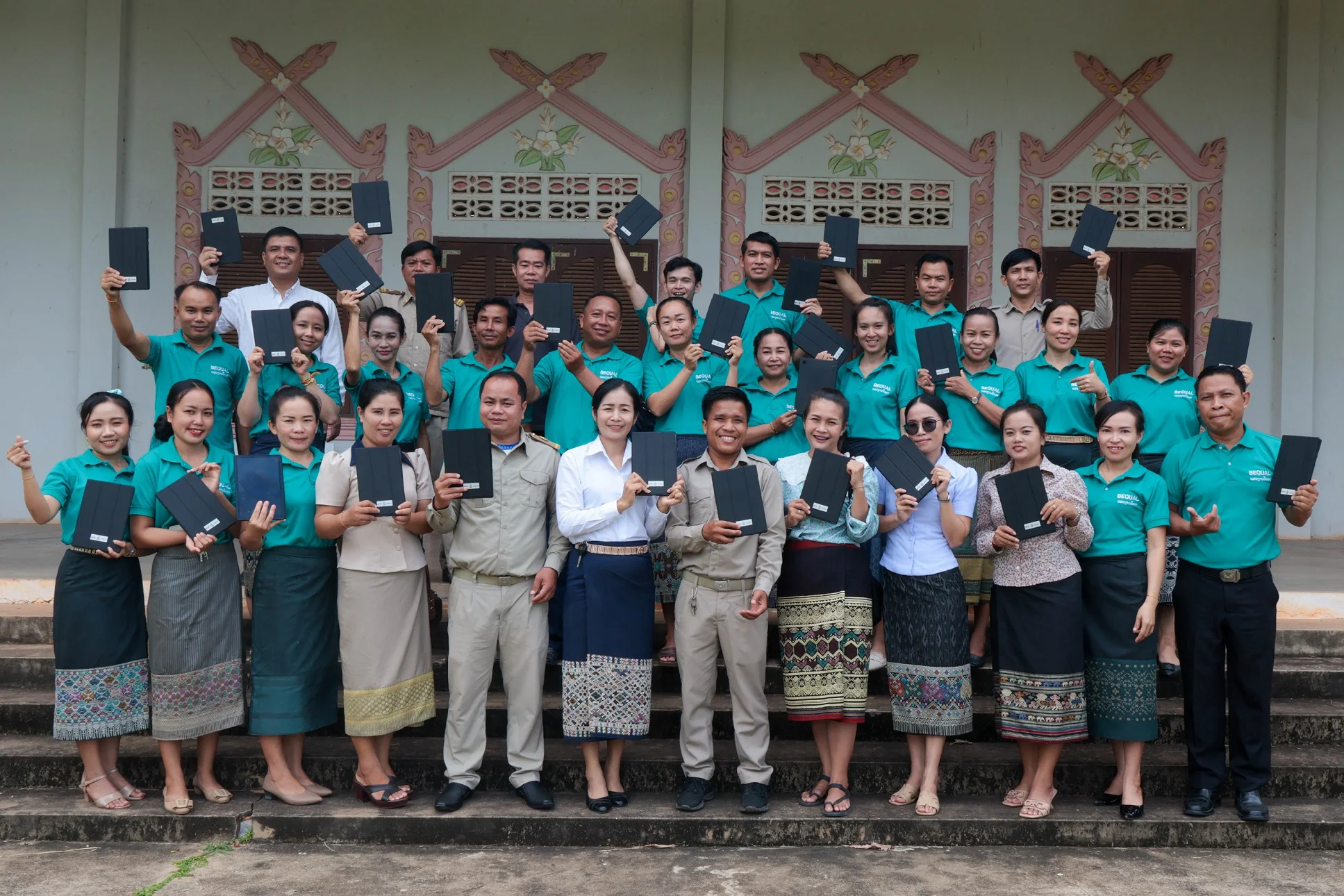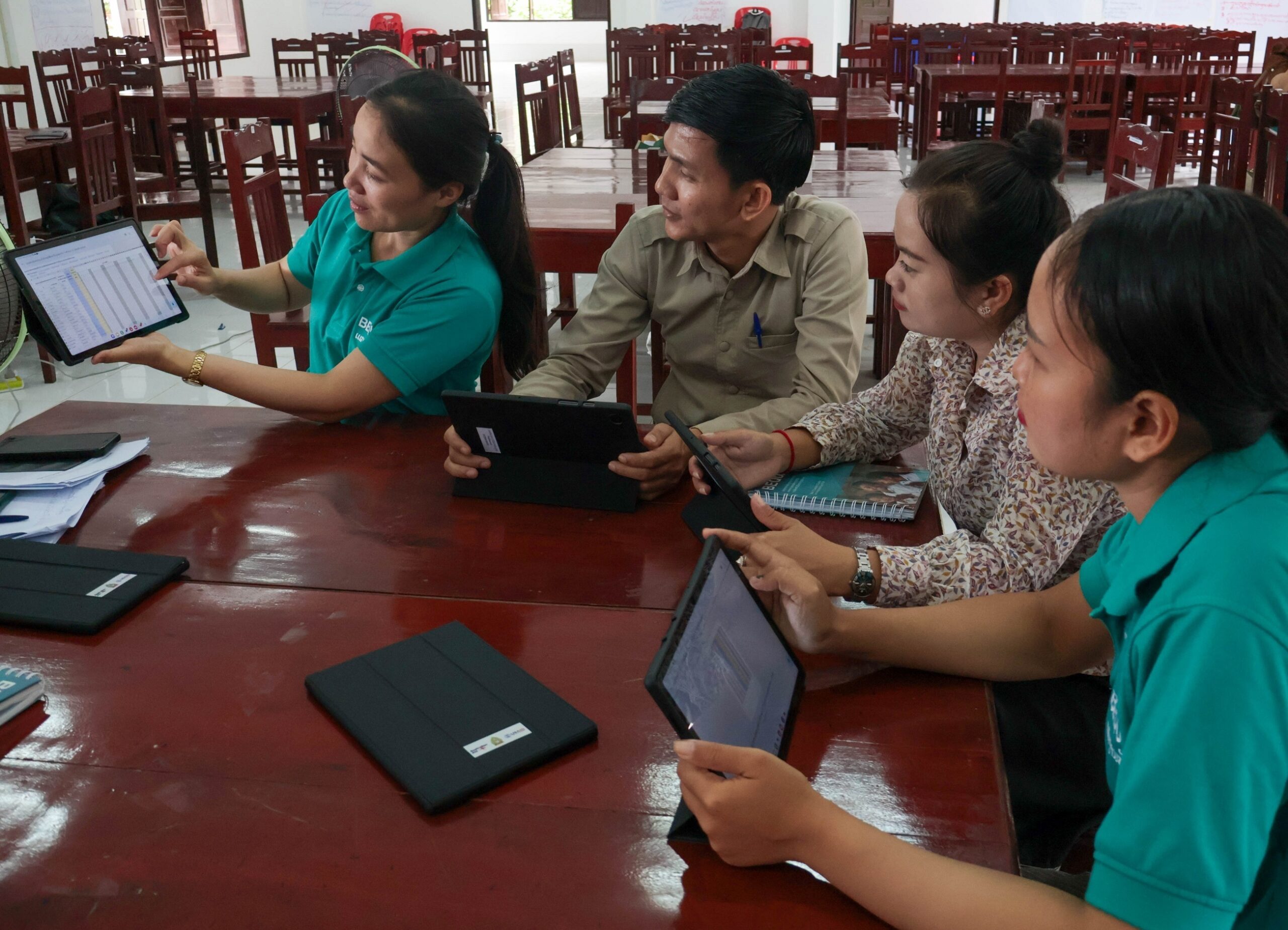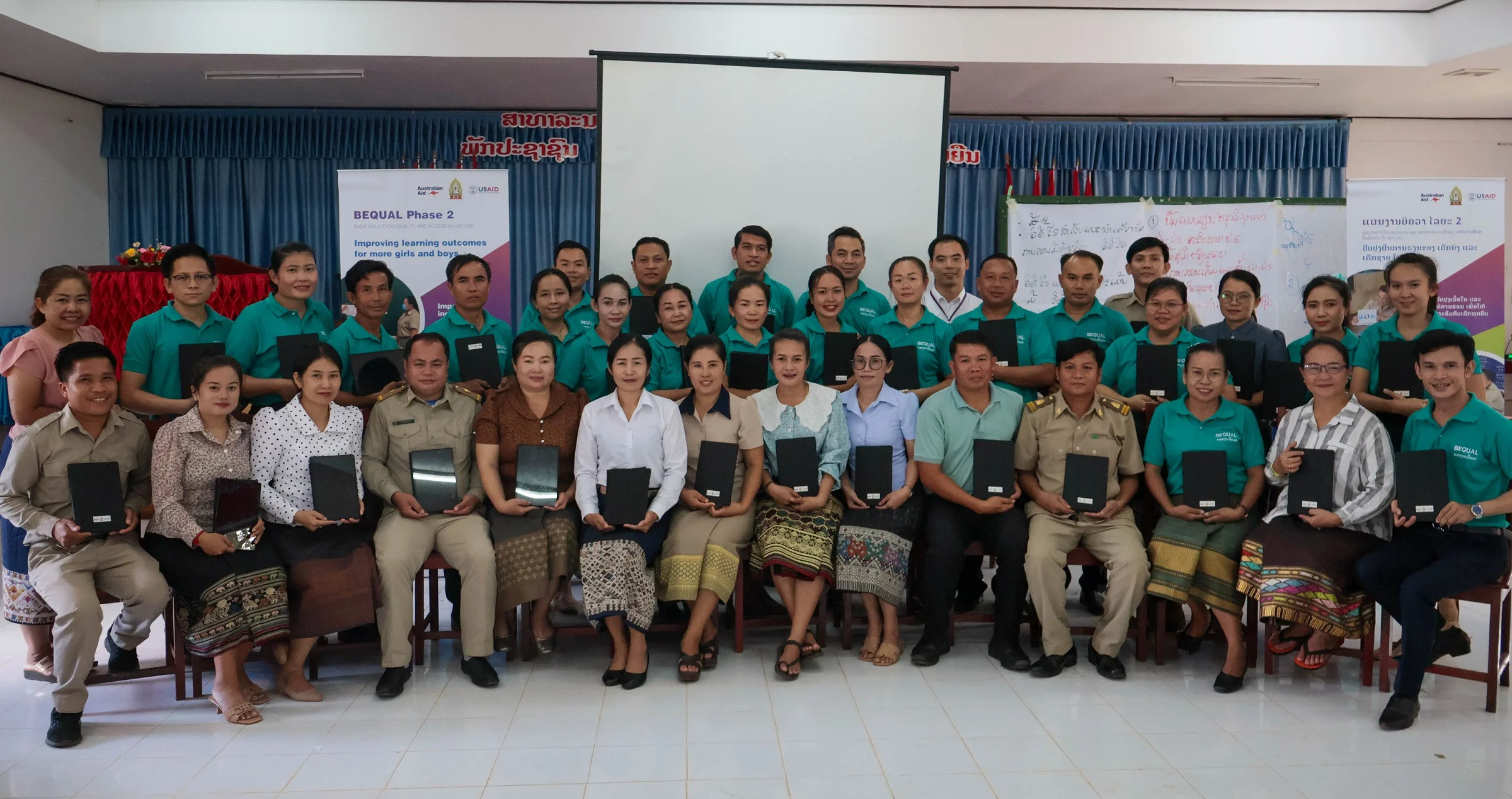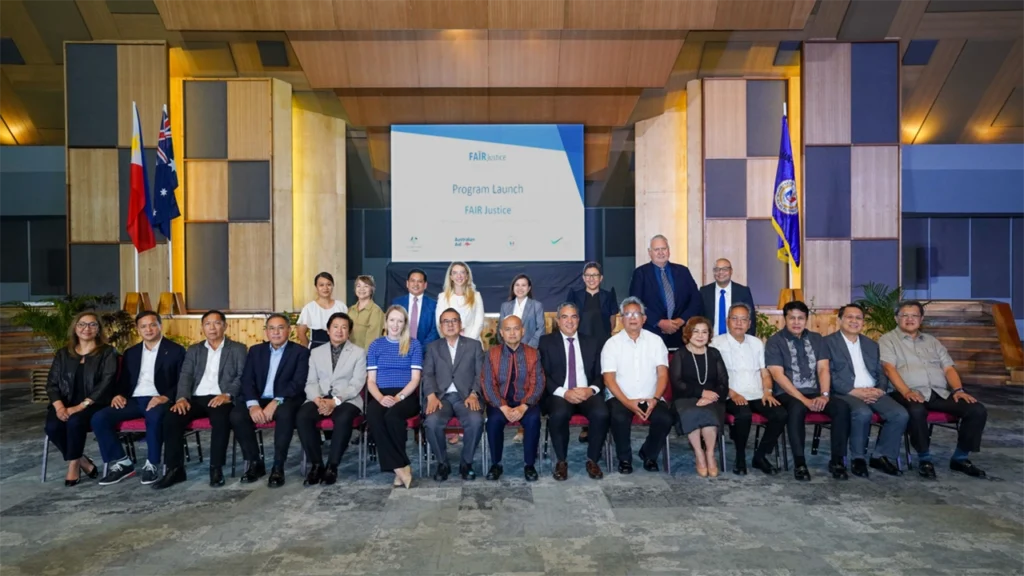
ICT in Education: Elevating Teacher Training in Lao PDR with Australia and USAID Support
A Joint Venture in ICT in Education for Quality Teaching in Lao PDR.
The Ministry of Education and Sports (MoES) in Lao PDR has teamed up with the Australian Government and the United States Agency for International Development (USAID). This joint initiative focuses on bolstering teacher training through ICT in education. It’s part of the Basic Education Quality and Access in Lao PDR (BEQUAL) program, aiming to improve the quality of teaching and enhance student engagement.
Through this ICT in Education initiative, a total of 1,245 data-enabled tablets and specialized training have been distributed to Internal Pedagogical Support (IPS) teams across 30 target districts. Workshops cover tablet usage, digital learning resources, and data collection methods, preparing educators for a smooth transition into the digital age.

The Role of IPS Teams in Implementing ICT in Education
Significantly, professional development support is provided by IPS teams from seven provinces—Phongsaly, Luang Namtha, Bokeo, Houaphanh, Xiangkhouang, Savannakhet, and Khammouane. These teams, comprising 1,043 principals, deputy principals, and teachers, are uniquely positioned to offer top-notch pedagogical support.
Mr. Keth Phanhlack, Director General of the Department of Teacher Education (DTE), spotlighted the persistent challenges in ICT resources and skills. He praised the crucial support from Australia and USAID, through the BEQUAL program, in equipping teams with vital tools and training for digital education.
The Digital Transformation: Monitoring, Support, and More
The tablets are critical for monitoring visits and remote assistance, facilitating effective data collection and resource-sharing. This not only aids IPS teams but also empowers District Education and Sports Bureaus (DESBs) with ongoing professional development.
Other aspects of the training focus on unpacking teacher guides and planning lessons for Lao Language, Math, and Science and Environment. There’s also emphasis on child protection and safeguarding measures.
In conclusion, Mr. Phanhlack states that starting from the new school year in September, IPS teams will begin support for primary teachers. Thanks to digital resources, these teams will provide custom advice and easily accessible teaching materials, boosting teaching quality and addressing challenges directly.




